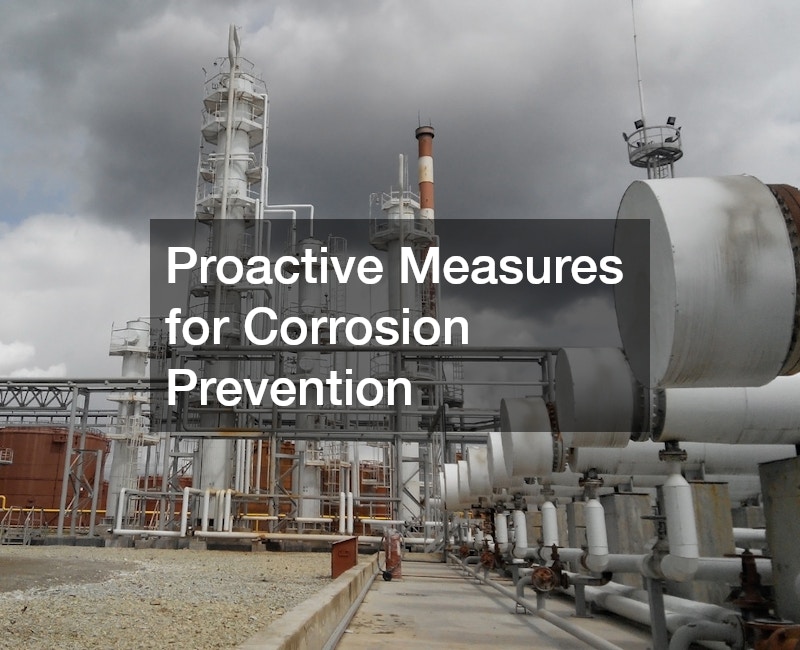Corrosion is a gradual degradation of materials, particularly metals, due to chemical reactions with their environment. It poses significant challenges to industrial equipment, often leading to unplanned downtime, decreased efficiency, and increased maintenance costs. In industries where equipment reliability and longevity are crucial, addressing corrosion is imperative. The costs associated with corrosion, according to estimates, can amount to billions of dollars annually, affecting operations and production schedules. It is crucial for industries to implement strategies that include timely corrosion testing services to ensure the integrity of their equipment.
Metal surfaces exposed to harsh environmental conditions are particularly vulnerable to corrosion. External factors such as moisture, temperature fluctuations, and the presence of corrosive elements exacerbate the problem.
Understanding these conditions allows industries to implement targeted protections. By analyzing environmental impact, industries can determine the appropriate protective measures or materials to extend equipment life. Regularly employing corrosion testing services can help identify early signs of wear and tear, enabling pre-emptive action before significant damage occurs.
There are numerous methods and materials designed to combat corrosion, ranging from coatings to advanced alloys. Selecting the right method depends on the type of equipment, the environment it operates in, and economic considerations. Industries can utilize protective coatings as a primary barrier, although they must be carefully selected for their ability to withstand specific corrosive elements. Additionally, corrosion testing services can provide pivotal insights, ensuring that the chosen methods are effective and within budget constraints. Employing a combination of these strategies is often the most prudent approach to protect industrial assets.
Proactive Measures for Corrosion Prevention

To protect industrial equipment from corrosion effectively, a thorough understanding of the equipment’s environmental interactions is key. Routine inspections and monitoring help identify potential risks and areas prone to corrosion. Regular maintenance protocols should incorporate corrosion testing services to regularly assess the condition of equipment and structural components. By implementing a proactive maintenance schedule, industries can prevent minor corrosion from escalating into severe structural damage. This approach not only extends the lifecycle of the equipment but also ensures operational safety and reliability.
One proactive measure involves employing protective coatings or treatments known for their resistance to environmental factors. Epoxy coatings, for example, are widely used due to their chemical and abrasion resistance. These coatings act as a shield, blocking corrosive elements from reacting with metal surfaces. The type of coating applied should correspond to the specific industrial application and environmental exposure. Engaging with specialists in corrosion testing services can help in determining the most suitable protective layers for specific industrial needs.
Cathodic protection is another effective technique for preventing corrosion, particularly in underground or submerged structures. This electrochemical process involves applying a small electrical charge to the metal, which inhibits the chemical reaction that causes rust formation. Industries operating with pipelines, tanks, and marine structures benefit significantly from this method. Thoroughly coordinated with corrosion testing services, this process ensures that the correct potential is maintained to prevent corrosion efficiently. This method can dramatically reduce maintenance costs and increase the longevity of critical industrial infrastructure.
Advanced Solutions and Strategic Planning
The integration of advanced technological solutions is increasingly becoming a vital part of preventing industrial corrosion. Non-destructive testing techniques, such as ultrasonic testing and infrared thermography, help in detecting early signs of corrosion without damaging the equipment. These techniques allow for the timely management of corrosion threats, ensuring the equipment’s integrity remains intact. Incorporating corrosion testing services using such advanced techniques provides a comprehensive overview of the equipment’s condition, allowing businesses to make informed decisions on maintenance and replacements. This foresight helps in strategic planning and resource allocation.
Digital monitoring systems also play a crucial role in modern corrosion prevention strategies. By leveraging IoT devices and sensors, industries can continuously monitor environmental conditions and corrosion rates. This real-time data collection allows for quick response to potential threats, enabling targeted interventions before major issues arise. Such systems work best in conjunction with regular corrosion testing services, providing a layered approach that maximizes protection efforts. Integrating technology into corrosion management plans ensures long-term effectiveness and operational efficiency.
Training and Workforce Awareness
An often-overlooked aspect of corrosion prevention is workforce education and training. Employees who operate or maintain industrial equipment play a critical role in identifying early signs of corrosion and adhering to proper maintenance protocols. Regular training sessions can teach staff how to recognize corrosion indicators, apply protective coatings correctly, and follow best practices when handling vulnerable materials. By integrating corrosion awareness into daily operations, industries can reduce the likelihood of human error contributing to equipment degradation.
Strategic planning for corrosion prevention involves a holistic assessment of industrial operations and their potential vulnerabilities. Industries must consider the lifecycle of their equipment, from design through to decommissioning, to implement effective anti-corrosion measures. Collaborating with experts in corrosion testing services allows industries to develop customized strategies tailored to their specific needs and challenges. By creating a robust, strategically driven corrosion management plan, businesses can protect their investments, minimize operational disruptions, and sustain productivity. A dedicated commitment to proactive and advanced corrosion prevention is essential for any industry reliant on heavy machinery and metal structures.


